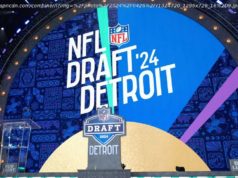After a few big banks restricted financing to the gun industry, some lawmakers — usually Wall Street’s allies — are looking for ways to squelch what they see as social activism.
When Congress decided not to take significant action after a spate of mass shootings this year and last, some big banks opted to take matters into their own hands by restricting financing for gun sellers.
Now, Republican lawmakers are pressing regulators to stop banks from doing so, over concerns they are veering too far into social activism.
The issue has put the Republican Party in the awkward position of choosing between its embrace of free markets and its concerns over infringement of the Second Amendment, even as the school-shooting crisis has persisted with the deadly attack at Santa Fe High School in Texas on May 18 and the wounding of at least two people Friday at a middle school in Indiana. Guns are creating a rare rift between Republicans and the financial industry, which has been among the party’s biggest contributors.
“If you’re going to turn us into a nation of red banks and blue banks, you’re making a mistake,” Senator John Kennedy, a Louisiana Republican and member the banking committee, said in a recent interview before the latest shooting. “Don’t come crying to us when you screw up and you want the American taxpayer to bail you out.”
Mr. Kennedy said he planned to file complaints with the Consumer Financial Protection Bureau against banks that are effectively restricting gun sales by setting their own rules on legal products and refusing to do business with gun makers and retailers that do not comply. He is also working to get Republican colleagues to join him in writing legislation to stop banks from discriminating against gun buyers.
Major banks have taken a series of steps this year to prevent guns from falling into the wrong hands. They are restricting their credit card and banking services to gun retailers and halting lending to gun makers that do not comply with age limits and background check rules determined by the banks. They are also freezing out businesses that sell high-capacity magazines and “bump stocks,” attachments that enable semiautomatic rifles to fire faster, even though such products are legal under federal law.
Citigroup was the first to unveil such a firearms policy in March when it announced that it would forbid any new retail clients who operate gun shops to sell guns to people who have not passed background checks. It also restricts those shops from selling firearms to people younger than 21 and bars sales of bump stocks and high-capacity magazines. Gun sellers that do not comply will not be able to raise capital through Citigroup, and the bank said it would look to move away from existing clients that do not change their policies.
In April, Bank of America said it would no longer lend money to manufacturers of military-inspired firearms that civilians can use, such as AR-15-style rifles. A bank executive said the policy was intended to help reduce mass shootings.
BlackRock, the world’s largest asset manager, said it would begin offering a new line of investment funds that do not include producers of firearms or retailers that sell them, cutting off a potential avenue of financing for gun makers and retailers.
Gun advocates have viewed the move as a direct assault on the industry.
Senator Michael D. Crapo, the Idaho Republican who chairs the banking committee, sent blistering letters in late April to the top executives at Citigroup and Bank of America, accusing them of using their market power to manage social policy. He told them not to go any further and warned them against developing ways to monitor gun transactions through their payments systems, a move that gun advocates view as a dangerous step toward using data to block law-abiding customers from buying guns.
“I am concerned when government agencies use their power to try to cut off financial services for lawful businesses they may disfavor,” Mr. Crapo wrote to Michael Corbat, Citigroup’s chief executive. “I am also concerned when large national banks use their market power for similar purposes.”
Mr. Crapo reminded the banks that he had fought against Operation Choke Point, an Obama-era initiative in which the Department of Justice and bank regulators worked to discourage banks from doing business with companies such as payday lenders and gun sellers. The Trump Justice Department decided to end the policy last year.
At a meeting with the Securities and Exchange Commission this month, a departing Republican commissioner, Michael Piwowar, assailed Citigroup executives over the bank’s gun policies. Mr. Piwowar, according to Bloomberg News, warned that the bank could struggle to get Republican support on the commission for easing derivatives regulations. He declined to comment on the exchange.
Citigroup also declined to comment, but Edward Skyler, its executive vice president for global affairs, laid out the bank’s position at a technology conference in New York this month. He said the February school shooting in Parkland, Fla., and the lack of a government response had inspired Citigroup’s executives to take action.
“We tried to balance respect for law-abiding gun owners and respect for the Second Amendment,” Mr. Skyler said, explaining that the bank’s goal was just to keep firearms out of the wrong hands. “The sense was nothing was really changing in our society.”
Gun lobbyists that usually direct their resources at attacking Democrats have now jumped into the fray to take on banks, pressing Republican lawmakers to use their influence to make the banks back down.
The website of the National Rifle Association’s lobbying arm, the Institute for Legislative Action, has been accusing bankers of infringing on constitutional rights from the comfort of New York City skyscrapers.
“There is growing evidence that some of America’s financial elite want to create a world in which America’s public policy decisions emanate from corporate boardrooms in Manhattan rather than from citizens and their elected officials,” an article on the website said.
Lawrence Keane, general counsel of the National Shooting Sports Foundation, said his organization had been lobbying lawmakers in hopes they would take action against banks. He said businesses should not be able to tell consumers what legal products they could and could not buy.
“We are very concerned that banks enter into this hotly contested political issue,” Mr. Keane said. “These are matters for the policy arena. Banks shouldn’t be interjecting themselves into this issue.”
Gun Owners of America tried, unsuccessfully, to use a financial regulation bill that the House passed this week as leverage to crack down on banks that it feels are discriminating against gun owners. In a letter to the House, it urged Republicans not to vote for the bill, which offers banks relief from the 2010 Dodd-Frank Act, unless those firms backed off the gun industry.
“Please do not support the Dodd-Frank reform legislation without the inclusion of an amendment that stops federally funded banks from discriminating against the lawful exercise of the Second Amendment,” said John Velleco, director of government operations at Gun Owners of America.
Home
United States
USA — Financial Banks Tried to Curb Gun Sales. Now Republicans Are Out to Stop...






